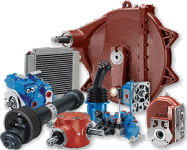OP
MChalkley
Elite Member
- Joined
- Mar 27, 2000
- Messages
- 3,198
- Location
- Eastern Virginia
- Tractor
- EarthForce EF-5 mini-TLB (2001)
zenmek - As to the former, You're welcome! And as to the latter, no problem, that's one thing you'll find out about this forum, if you haven't already: There are always folks here who are willing and able to help. Over the years, I've used lots of suggestions and leads from this site. Lately, I've been getting a lot more help than I've been giving, but that's another great thing about the gang here - you almost never hear anyone griping about, or sniping at, anyone else.
I looked at your bio and it seems you'll have a lot to contribute, too. Welcome!
MarkC


I looked at your bio and it seems you'll have a lot to contribute, too. Welcome!
MarkC






